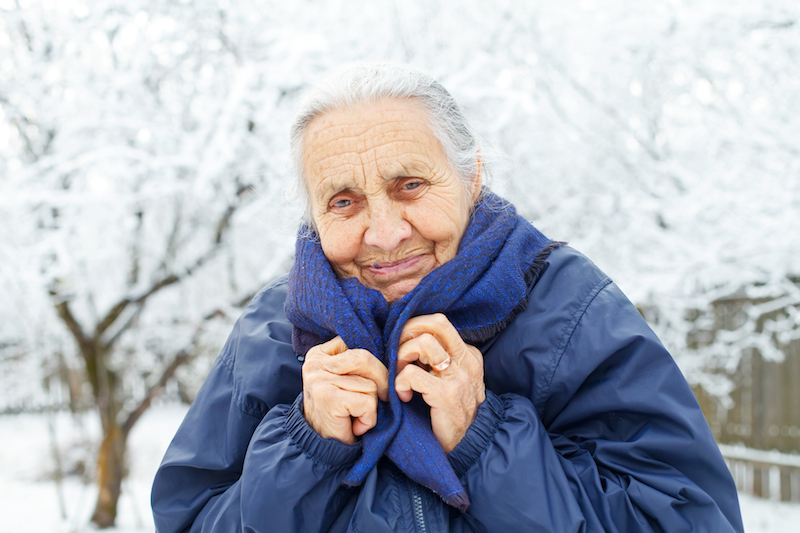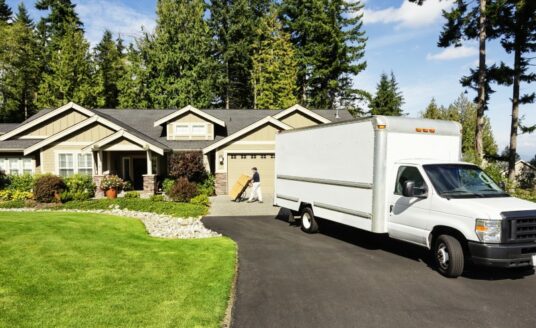While most people are energized by spring, summer, and fall, preparing for winter can be more like waging a war than a celebration.
Yes, winter can be beautiful, but preparing for its ill effects is especially important for senior adults. In addition to the general cold, seniors are more susceptible to injuries from falls on ice, the effects of dry air, and isolation caused by winter weather.
Here are some tips for winterizing a senior’s home, so they can get back to enjoying the season. Let’s start from the outside and work our way in.
Staying Safe Outside
Plan for Snow and Ice Removal
Not only do many seniors sustain serious injuries as a result of falls, but many of them have compromised immune systems, problems with balance, heart conditions, or other physical issues. This will affect the amount of activity they can endure during the season, including the amount of shoveling they can safely perform.
That’s why prior arrangements should be made with neighbors, friends, or a professional service to clean driveways, steps, and sidewalks around the property during wintery weather.
Also, seniors should wear shoes with good traction and non-skid soles. Rubber tips on canes should be replaced if worn smooth. Seniors may need to be reminded to take off their shoes and store them out of the way so that they don’t track melting ice and snow through the house, creating slippery surfaces.
Check for Leaking Windows and Roofs
Water leaks can cause mold growth, damp areas inside the home, and severe damage to walls, floors, and furnishings. Drafty windows can make heating costs soar.
Check the senior’s home for drafts, and install weather stripping as needed. Call for professional help if leaks are too significant for a minor repair.
Outside Storage, Maintenance, and Car preparation
Drain and disconnect garden hoses before freezing weather. Also, due to the cold, clay garden pots may break if soil inside them is not removed. Be sure lawn mowers are drained of fuel. It is also a good idea to winterize them with additives available at auto or hardware stores. In addition, insulate any exposed outside pipes to prevent freezing.
If they have a car, make sure it is ready for winter. Tires, fuel, antifreeze levels, windshield wipers, and windshield fluid should be checked frequently. Also, it is good to have an emergency kit in the car with the following:
- Flashlights
- Blankets
- Extra pairs of warm gloves
- Jumper cables
- Ice scrapers
- Bright reflective vests
- Roadside flare sticks
Remind your seniors to always drive with a fully charged cell phone and at least a half tank of gas in the car. Also, suggest that they let a caregiver know where they are going and when they plan to be back home.
Power Outages
Remind your senior that if ice or tree limbs have downed power lines, they should not check on the damage or remove obstacles until after the power and phone companies have arrived.
Walking is obviously hazardous, and live wires could lay obscured on the ground. Also, limbs may continue to fall during severe ice storms.
Check out this comprehensive list of winter power outage tips to consider before, after, and during a power outage.
Preparing the Inside
Heat
If the home is heated by a wood-burning stove or fireplace, make certain that they have enough wood and that it is stored in an easily accessible location.
Close off unused rooms and seal with a towel around the bottom of doors to reduce heating costs. Make sure the thermostat is set no lower than 68 degrees. Keep in mind that seniors are less able to detect when their bodies are dangerously cold, and people with chronic medical conditions are more vulnerable to its effects. Emphasize that lowering the temperature further to save money is not a good idea.
Have chimneys and flues inspected annually to reduce the risk of fire. Space heaters should be examined for frayed cords and placed no closer than three feet from anything that might catch fire. Also, make sure two working fire extinguishers are stored in separate locations in the home, where they are clearly visible and easy to reach in an emergency.
Pipes in non-heated areas of the home (attic, garage, basement) should be insulated. In extreme cold, faucets should be set to drip slowly to prevent the freezing and bursting of pipes.
Safety
The home should have working smoke and carbon monoxide detectors with fresh batteries. An emergency kit inside the house should include:
- Flashlights
- Batteries
- Battery-powered radio
- Enough non-perishable food for three days
- Drinking water
- Warm clothing
- Regular and emergency medications
- Fully-charged cell phone
- A list of emergency contact numbers
It is important for the senior to know where water shutoff valves are located in case of bursting pipes. They should also know the location of electrical breaker boxes and how they operate.
Nutrition Needs
Good nutrition for seniors is very important for fighting off the effects of the cold. Make sure they are always well-stocked with foods that meet their nutritional needs. Offer to grocery shop for them if the weather prevents them from traveling to the grocery store.
Dry Air
Winter’s dry air can also be a problem, causing dry and cracked skin, static electric shocks, parched throats, nosebleeds, and an increased susceptibility to colds, sinus infections, and the flu. Running a humidifier will help, as will sealing the home against the outside air. It’s also important to drink plenty of water and use skin moisturizers that lock moisture into the skin.
Symptoms of Depression
During the winter, reduced contact with others can trigger feelings of loneliness and isolation in seniors. Family members and caregivers should check on their senior loved ones more frequently during the winter months. It’s also a good idea to arrange a check-in system with neighbors and friends, particularly if family isn’t close by.
Make Visits a Priority
Visit the home as frequently as you can, not only to ease loneliness, but to make sure that the home is in good order with plenty of food, sufficiently warm, and stocked with needed supplies. Re-check the location and condition of space heaters, and ensure that the seniors are wearing warm clothing. Ask yourself if the home looks well-maintained, clean, and safe. Start their car and let it run for a few minutes. Walk around the house to see if there are any maintenance issues.
Encourage your seniors to share any needs or concerns they may have. Keep in mind that they might be reluctant to share if they’re not prompted. If weather permits, take them for a walk. You can play a board game with them, or bake some cookies. Spending time with them may be the best thing you can do for your senior loved ones during the long winter months.
Winters aren’t everyone’s favorite time, but they don’t have to be gloomy! Learn more about home safety and how to enjoy your winter on our blog.
| Whether you choose independent living, assisted living, memory care, or skilled nursing, your experience at Bethesda will be filled with compassionate care and meaningful connections. If you are considering independent living, we encourage you to tour our communities, including Bethesda Barclay House – Clayton, Bethesda Gardens – Kirkwood, Bethesda Orchard – Webster Groves, Bethesda Terrace – South County, Village North Retirement Community – Florissant, and The Oaks at Bethesda Villas – Kirkwood/Webster. If you have any questions about our non-profit senior living communities, contact us today. |
Want to find out more?
If you’d like to stay up to date with Bethesda Health Group, sign up here to receive our blog and newsletters!
"*" indicates required fields
Related Articles
Want to find out more?
If you’d like to stay up to date with Bethesda Health Group, sign up here to receive our blog and newsletters!
"*" indicates required fields



